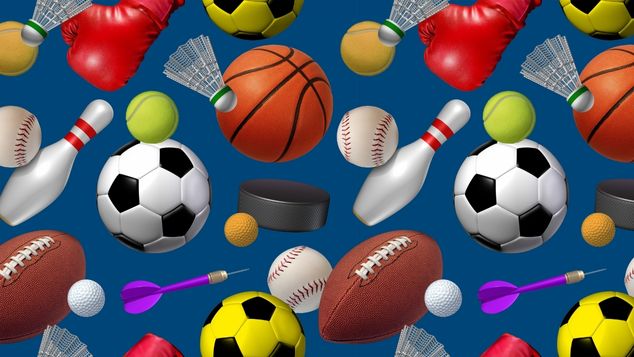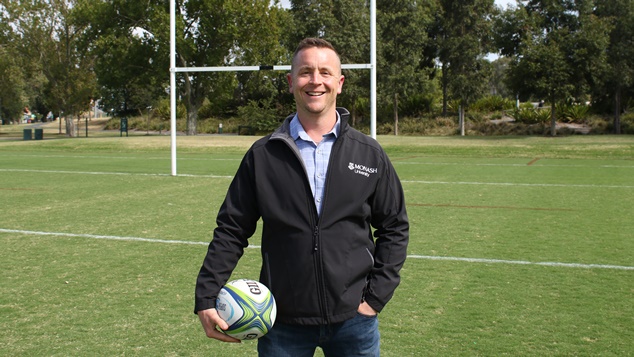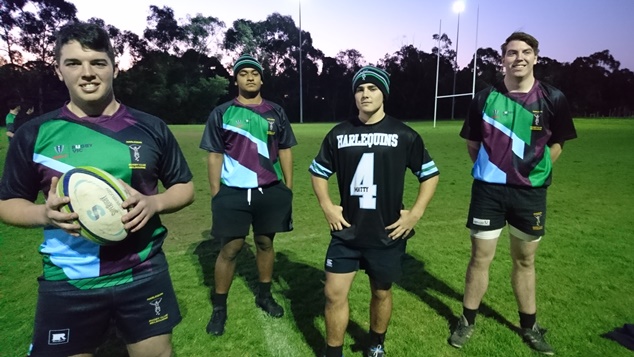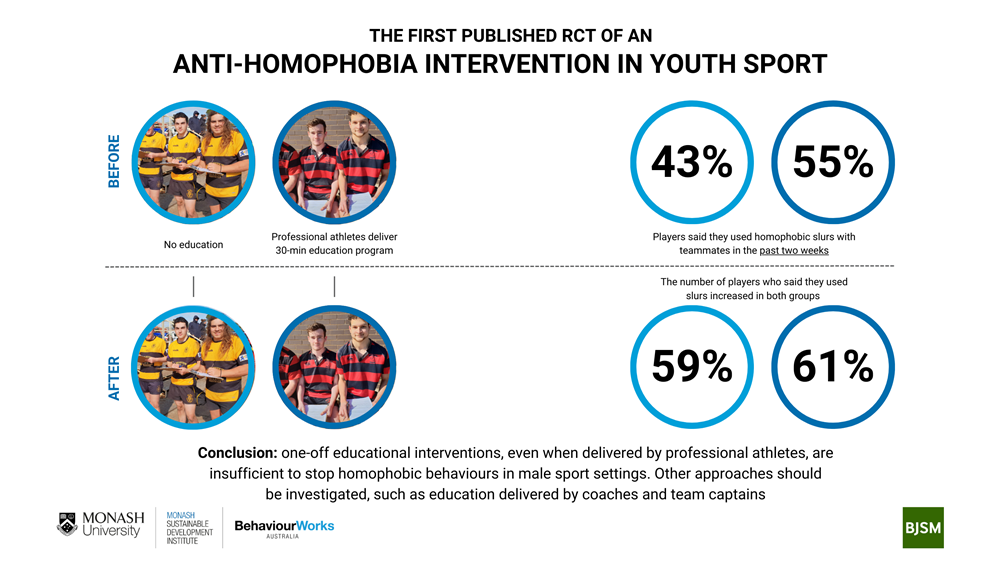World first study calls for new approach on homophobia in sport | OUTInPerth

A world-first study has found that an educational approach widely used by sports organizations to stop harmful homophobic behavior and other forms of discrimination is ineffective.
The Monash University study, published in the British Journal of Sports Medicine, assessed the effectiveness of using professional rugby players to educate young people about the harm caused by their behaviour.
The study found that this approach to reducing prejudice had no impact on homophobic language, which continued to be used by 61% of the athletes who received the training.

Lead author and researcher at Monash University’s Behavior Science Laboratory, Erik Denison, said the volunteer coaches would not enforce existing policies protecting children from harmful homophobic behavior and without the support of coaches, educational programs for young athletes would fail.
“Sports organizations often use professional athletes to educate children about the harms caused by homophobic, sexist or racist language. This is the first study to test whether this approach is effective,” said Dr. denison
“Unfortunately, in our study, we did not find any changes in the frequent use of homophobic language by adolescent athletes.”
To change homophobic behavior, the study recommends that sports leaders and governments ensure coaches in children’s sports enforce policies that prohibit discriminatory and harmful behavior.
“We found that the coaches did not support the education of the professional athletes. The trainers, who are volunteers, have not enforced policies banning this very harmful language,” said Dr. denison
“This is of concern as the constant use of homophobic language in youth sports is detrimental to the mental health of all children, regardless of their sexuality.”
The International Olympic Committee has also found that the frequent use of homophobic language by peers and coaches in sports puts children at higher risk of suicide, self-harm and sexual abuse.

Every rugby union team (total population) in Victoria with players aged 16-20 took part in the survey, which was supported by the Australian Government, Rugby Australia and Rugby Victoria.
The study measured the frequency of homophobic language used by rugby players before and after training. The behavior of teams that received the training was then compared to the behavior of teams that did not receive the training.
“The study provides the latest evidence that sports leaders must take decisive action to stop discrimination in sport, but it is unlikely that they will take such decisive action without government intervention,” said Dr. denison
“Studies consistently show that sports leaders view stopping discriminatory behavior as optional and a distraction from playing their sport and winning games.”

Former Melbourne Rebels captain Tom English, one of six professional rugby players who have helped deliver and help develop the education, said more needs to be done to change behaviour.
“I think we still have a lot of work to do to change that language and change what guys think is acceptable behavior in rugby and the sport,” said English, who now plays professional rugby in Japan.
“People use this language to prove they’re tough and a ‘man.’ Whatever the reason, players need to understand that this language is hurtful, it discourages people from playing rugby and it also leads to young people trying to self-harm.”
The study’s findings support the IOC’s conclusions that stopping discrimination in sport requires multi-pronged intervention strategies, which should include training from respected peers.
This is the first study to test the effectiveness of “diversity” and “sensitivity” training in sport, but the results are consistent with similar studies conducted in workplaces and schools.
Source: media release, images Monash University.
You can support our work by subscribing to our Patreon
or contribute to our GoFundMe campaign.
